Table of Contents Show
If you’ve got a large sum of money burning a hole in your pocket and want to invest, an RV might not be the best option. Most passenger vehicles depreciate incredibly fast. However, RV depreciation is so bad it can make your stomach churn just thinking about it. Today we’ll look at why RV depreciation makes investing in RVs and expecting a monetary return a bad idea. Let’s get started.
What Is RV Depreciation?
Depreciation is anytime you buy a product, and it lessens in value over time. This could be a car, house, or in this case, an RV. RVs often come with hefty price tags but can be worth fractions of the original price in just a few years.
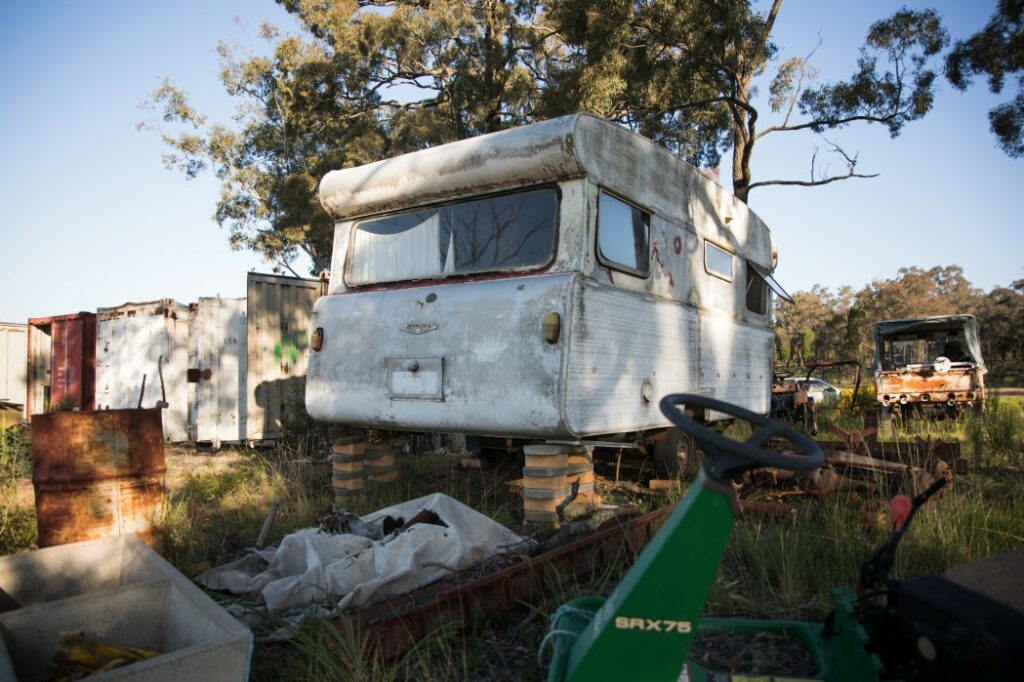
Why Do RVs Depreciate So Much?
RVs depreciate for several reasons. Each year manufacturers make adjustments to their models and often make adjustments based on consumer feedback. Consumers prefer the fancy new features and layouts that an older RV may not have. Every time an RV manufacturer rolls out a new model year, your RV depreciates a little more.
Typically you buy an RV to use it. It’s useless if it sits in storage and never sees a campsite. Whether you travel full time or for sporadic adventures, the more you use it, the more it will depreciate. Putting miles on your tires and other essential components can diminish its value.
Additionally, using it will accelerate the wear and tear on the fabrics and interior. It will likely get scratches and carpet stains. You may think it adds a bit of character and reminds you of the many memories you’ve made, but they still cause your RV to depreciate.
Water damage is another significant reason why RVs depreciate so much. This is often because water damage can go undetected for a long time, and it can become very labor-intensive and expensive to repair. Minimize the depreciation on your RV by keeping water out and doing routine inspections and maintenance.
Keep in Mind: We have 10 important facts to consider before making your RV purchase.
How Much Do Campers Depreciate Each Year?
Some estimates show that RVs typically lose 20% of their value in the first couple of years. This often means that once you tow your RV off the dealership lot, it can be worth 20% less than what you paid for it. Some RVers even put 20% down at the time of purchase to avoid owing more than their RV is worth.
However, the depreciation doesn’t end there. Each year the value of your RV will continue to worsen. In year three, you can expect 26.7% depreciation and 30.27% in year four. By the time you reach the 10-year mark, the value has diminished well over 50%.
These numbers also assume that you’ve taken good care of your RV and kept up on the maintenance. An RV that looks rough or has maintenance issues will depreciate much faster.
Which RV Type Has the Highest Depreciation Rate?
Motorhomes often have some of the highest depreciation rates out of all RVs. This is usually because the more you use it, the more miles you put on it. The more miles make it less appealing to a future purchaser.
Class A, Class B, and fifth wheels often have some of the highest depreciation rates too. If you purchase one of these, just know you may not get a good monetary return when you try to re-sell it. Your RV will help you feel rich with memories instead of cash.
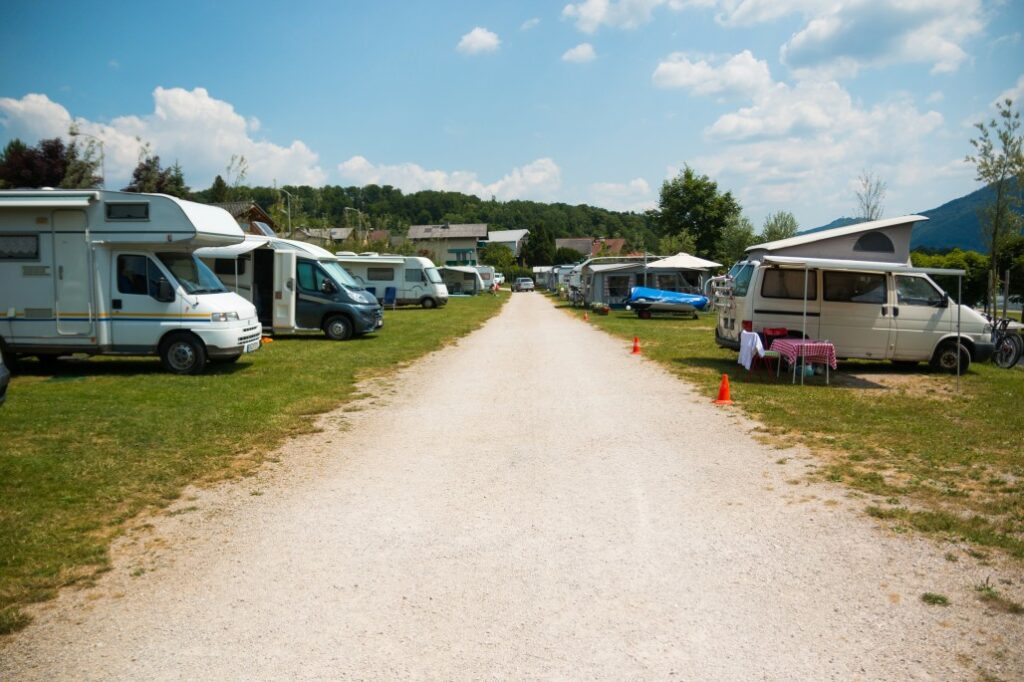
Which RV Type Has the Lowest Depreciation Rate?
The Class Cs have the lowest depreciation rate. They have a smaller size and length, making it easy to navigate in campgrounds and parking spots. This often means they may have less surface damage, and more people may show an interest in having one. The mix between a Class A and a camper van also tends to keep its value.
Do Any Campers Increase in Value?
Due to usage and wear and tear, a camper’s value doesn’t usually grow. However, the massive surge in demand for RVs has caused some RVs to increase in value. The supply shortages and delays in manufacturing have caused the used RV market to flourish.
Typically the used campers you’ll see going for a premium price have been remodeled or include some convenient upgrades. Adding an off-grid solar system or chic farm-house style decorations can help your RV maintain its value.
Balancing functionality with aesthetics can help avoid your RV’s depreciation. Having a happy medium between the two helps keep your RV in demand for both those looking to go for a weekend trip and those wanting to travel full time.
How to Prevent RV Depreciation
If you already own an RV, good maintenance, upgrades, and home improvements can help it keep its value. Making sure it doesn’t have water damage, leaks, or old components can help it last longer.
However, if you don’t already own one, you can help prevent RV depreciation by buying a used one. You’ll want to make sure that the previous owner has done routine and essential maintenance, though.
If you purchase a well-maintained RV that’s five to eight years old, you can save a large chunk of money. Many owners will let another person take the massive hit from the dealership when it comes to depreciation.
Pro Tip: If you’re considering buying a used RV, utilize these 6 keys to success.
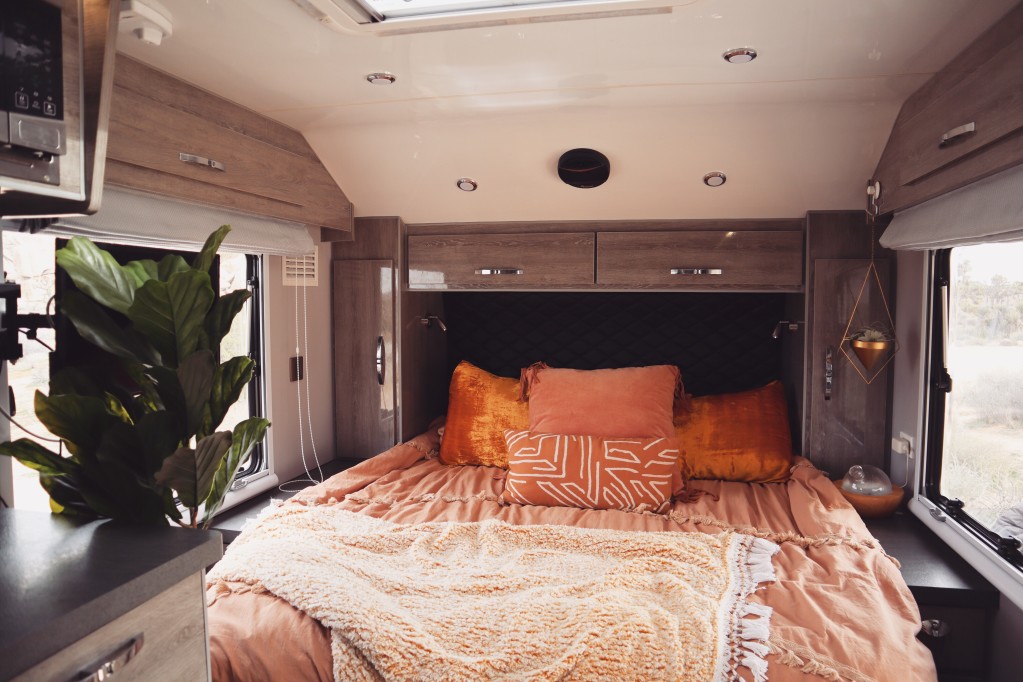
Is Buying an RV a Good Investment?
There are very few situations where buying an RV becomes a good financial investment. However, the rewards of owning an RV can mean making priceless memories with those you love most.
If you purchase an RV, you likely understand this concept and know that not every investment has an excellent financial return. You can consider it an investment in your family instead. Do you think an RV is a good investment?




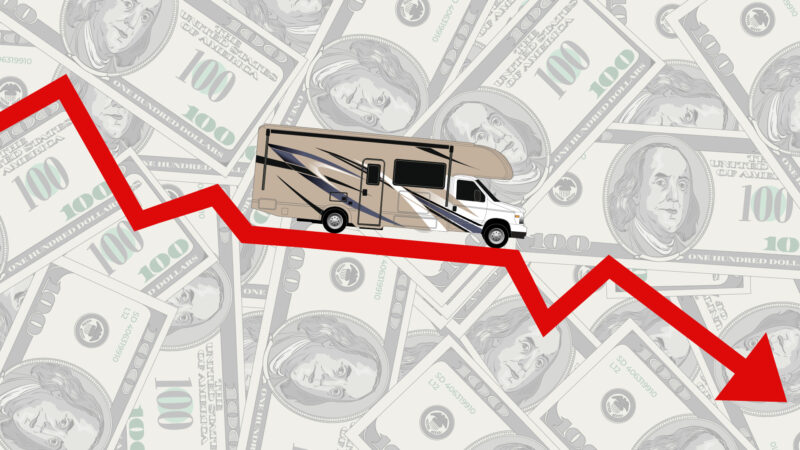
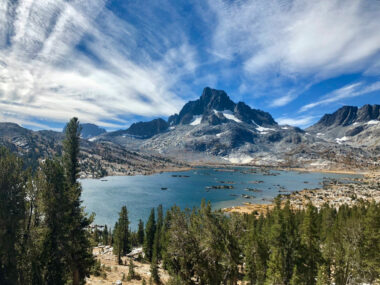
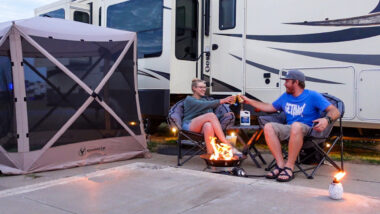
Your comments on RV depreciation are certainly what we have seen our 35 years of RVing. Another issue not mentioned, involves the real lack of quality finish that some brands have when their products arrive at the dealership, requiring the dealers to “finish” the construction. It is very tempting to buy a new unit from an RV show, but we have almost always purchased units that are at least 3 years old. We feel that the worst of the depreciation has already occurred and the minor issues have all been fixed. We have also notice that the depreciation (loss) curve tends to flatten out with time. So if you are ok with an 8-10 year old unit, the future depreciation rate is much much less. We purchased a 19 year old truck camper for our 2-summer cross Canada trip (a total of 28,000 kms & 7 months of use). We fixed a few issues, updated the interior and sold it 2 years later for more than our total investment.